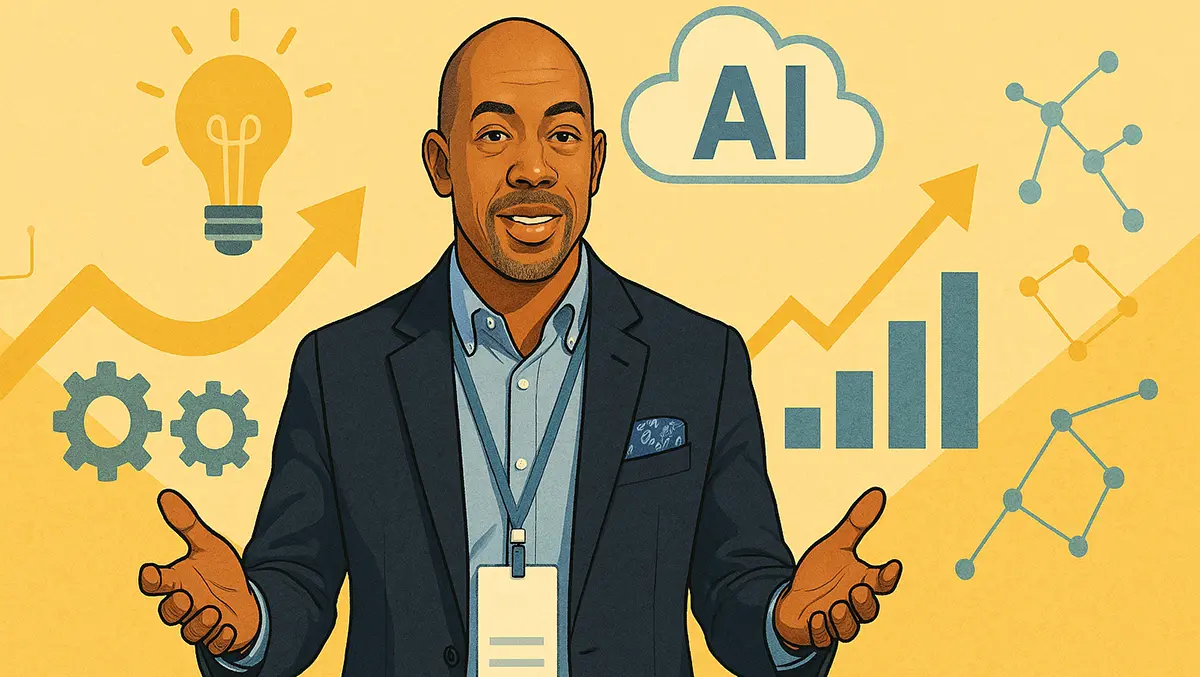
Fast moves, big change: Google Cloud on AI enabling business
The speed of change is dizzying. For Google Cloud's Bobby Allen, though, that's exactly where the opportunity lies.
"I'm most passionate about the fact that AI is going to allow people who are not developers at heart to be builders," said Allen, who serves as Cloud Therapist and Outbound Product Manager for Google Kubernetes engine at Google Cloud. Speaking to TechDay, he painted a future where domain knowledge, not coding prowess, is the true differentiator.
"We need people that operate at the intersection of technology and domain expertise," he added. "If you've worked at a drive-thru or been an Uber driver, you probably understand more about customer experience than many technologists do."
Allen's point is clear: we're entering an era where asking the right questions and spotting friction points is more valuable than writing perfect code. It's not just a shift in tools, but in mindset.
Asked how managers can help their teams keep up with the rapid pace of change, Allen urged leaders to focus less on reinvention and more on remixing.
"Everything new isn't good, and everything old isn't bad," he said. "Success now is about mastering the remix – knowing what new things to embrace and what old things to retain."
Allen's analogy for understanding AI's role in business is just as memorable as it is useful. "Cloud is to AI what Michael Jordan is to Kobe Bryant – one built on the other's success," he explained. "You don't throw away your history. You pair your existing knowledge with new capabilities."
One of the key pitfalls, Allen warned, is assuming AI is only for those building models. "Most people are not creating AI," he said. "They're using AI to solve problems. That's the paradigm for most of us."
He divided AI's impact into three buckets: what you build, how you build, and how you operate. "People assume they need to train large language models to be part of the AI world – but that's just a sliver. The majority will use AI to enhance processes or make better decisions."
So where does a small business start? "Figure out gaps. Use AI to solve problems," Allen said. "AI is not the thing. AI is the thing that makes the thing better."
But letting go of legacy projects can be emotionally difficult. Allen likened it to moving house. "You don't want to take baggage from three houses ago. The pace of change forces us to purge."
Drawing on his own experience – he's moved house eight times since 2002 – he said change brings clarity. "Do you really need to take this with you? Or is it better to let it go?"
And with the stream of new tools emerging seemingly daily, how can professionals keep up? "Honestly, you can't," Allen admitted. "Even working at Google, I can't keep up. So I don't want people to beat themselves up about it."
His solution: develop a sustainable information diet. "You have to decide on a budget – maybe 10 minutes a day – and be consistent. If you're searching for what to study, you're not studying."
He suggested finding trusted sources, like daily email digests, that push curated knowledge to you, rather than having to chase it down. "You don't have time to read ten articles, but maybe you can read two during your lunch break."
Allen also stressed the value of being "multi-generational" in your curiosity. "What does this mean for my teenagers? What does this mean for my mum?" he said. "Tech should serve people – not the other way around."
As for the roles that matter in a modern, AI-augmented startup, Allen believes traditional silos are disappearing.
"There's not going to be a tech side and a business side anymore – those are going to converge," he said. "In a startup, everybody's in sales. And everybody's a builder."
That doesn't mean everyone's coding, but it does mean everyone contributes. "You might be creating documentation, podcasts, images, or research papers. There's something you're adding."
He broke down the essentials to four core functions: building, selling, enablement, and customer success. But more important than job titles, he said, is mindset.
"We need people who are impatient," Allen added. "People who want to give things away – not hold onto legacy processes just because they're safe. You have to purge your mind and your schedule to make room for the new."
And when asked what kind of people should make up a modern tech-driven business, he offered a final reflection that neatly wrapped the interview:
"You want people who are willing to disrupt themselves – before someone else does."


